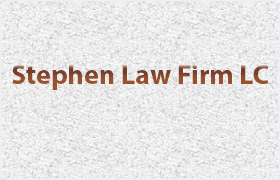Union City Criminal Lawyer, Georgia
Sponsored Law Firm
-
 x
x

Click For More Info:
-
Stephen Law Firm LC
4411 Suawanee Dam Rd Suite 820 Suwanee, GA 30024» view mapCriminal Law Exceptional Representation
We are a general practice law firm with offices located in North and South Gwinnett.
800-871-0830
Cathy Rae Nash
Landlord-Tenant, Traffic, Entertainment, Misdemeanor
Status: In Good Standing Licensed: 36 Years
Charles Dewayne Hodges
Industry Specialties, Government, Criminal, Non-profit
Status: In Good Standing Licensed: 21 Years
Demone Wyatt Lee
Premises Liability, Federal Appellate Practice, Criminal, Personal Injury
Status: In Good Standing Licensed: 16 Years
George O. Lawson
Private Schools, Other, Family Law, Criminal
Status: In Good Standing Licensed: 48 Years
Gerashonte Walton
Education, Real Estate, Divorce & Family Law, Criminal
Status: In Good Standing Licensed: 20 Years
Jared Thomas Hall
Intellectual Property, Entertainment, Criminal, Corporate
Status: In Good Standing Licensed: 12 Years
Jermario Lamar Davis
State Trial Practice, Criminal, Identity Theft, Civil & Human Rights
Status: In Good Standing Licensed: 17 Years
Natalie Dawn Mays
Divorce & Family Law, Criminal, Bankruptcy & Debt, Traffic
Status: In Good Standing Licensed: 30 Years
 Stephen Law Firm Suwanee, GA
Stephen Law Firm Suwanee, GA AboutStephen Law Firm LC
AboutStephen Law Firm LC Practice AreasSpecializations
Practice AreasSpecializations
